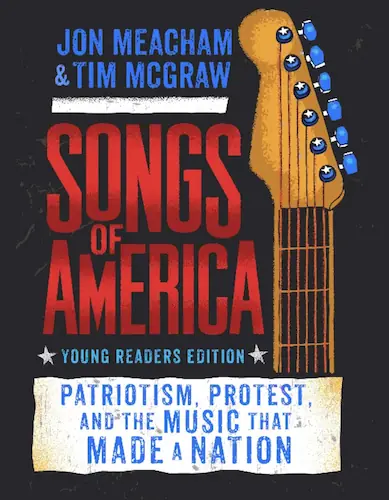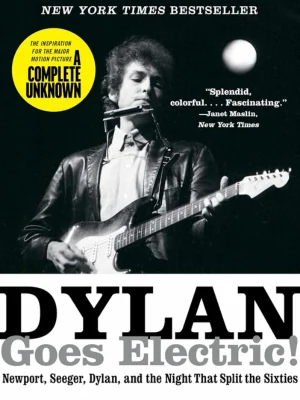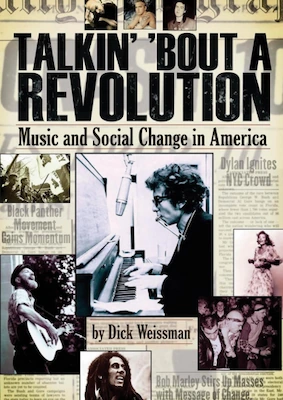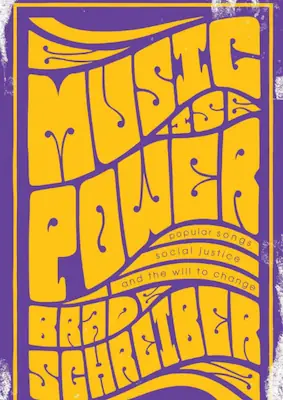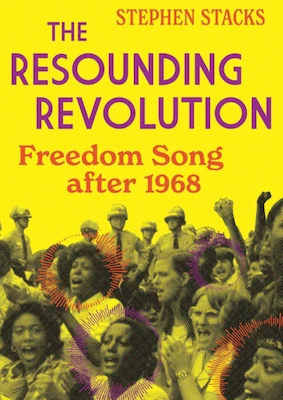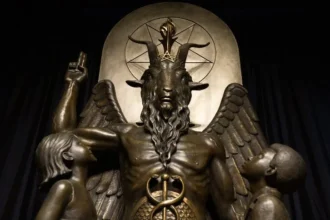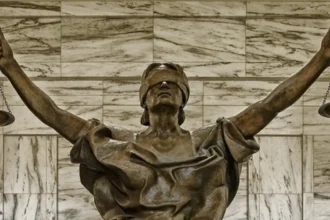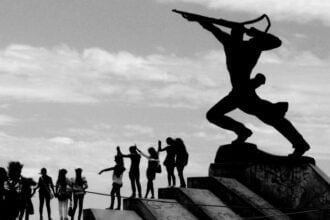La fusion harmonieuse entre la musique pop et l’activisme a joué un rôle fondamental dans la construction du monde tel que nous le connaissons. Des hymnes de protestation emblématiques qui ont résonné dans les tumultueuses années 60 aux succès contemporains qui plaident pour des enjeux mondiaux urgents, l’interaction entre la musique pop et la politique est un puissant récit tissé dans la trame du changement social.
Alors que nous entreprenons un voyage à travers les décennies, nous explorons la résonance politique de la musique pop, en analysant comment les musiciens se sont transformés en agents de changement et comment leurs mélodies et paroles continuent de résonner en tant que voix influentes dans le discours en constante évolution de notre monde.
La naissance des hymnes de protestation
In the tumultuous decades of the 1960s and 1970s, a musical revolution transpired, marking a profound shift in the cultural and political landscape. Music, once primarily seen as a form of entertainment, metamorphosed into a potent instrument of political change. It was during this time that a genre of songs emerged, defined not only by their lyrical prowess but also by their unwavering commitment to social justice and equality.
L’intersection entre la musique pop et la politique a un impact profond sur les jeunes générations.
Peut-être qu’aucun autre artiste n’incarne mieux cette transformation que Bob Dylan, dont l’hymne “The Times They Are A-Changin'” a profondément résonné avec le mouvement des droits civiques et les manifestations contre la guerre. Ce chef-d’œuvre a transcendé la simple mélodie et le rythme ; ses paroles étaient un appel clair, un cri de ralliement pour une génération désabusée par le statu quo. En moins de vingt mots par phrase, les vers de Dylan ont capturé l’esprit de l’époque, incitant les individus à jouer un rôle actif dans la transformation de leur monde.
“What’s Going On” de Marvin Gaye et “War” d’Edwin Starr sont des exemples éclatants de la manière dont les artistes ont utilisé la musique pour affronter de front les problèmes sociaux. La voix soul de Gaye a transporté les auditeurs dans un monde où l’inégalité raciale était mise à nu, tandis que l’interprétation passionnée de Starr remettait en question les fondements moraux de la guerre du Vietnam. Leurs compositions, riches en profondeur émotionnelle, ont transcendé le divertissement pour devenir de puissants outils de critique sociale et politique.
Les icônes de la pop devenues activistes
Au cœur des bouleversements sociaux et culturels des années 1960 et 1970, une transformation d’une importance remarquable se produisait dans le domaine de la culture pop. Les artistes emblématiques de l’époque ne se contentaient plus de créer de la musique ; ils ont progressivement évolué vers l’activisme politique, laissant une empreinte indélébile à la fois sur l’industrie musicale et le paysage politique.
L'une des figures les plus emblématiques de cette transformation fut John Lennon, célèbre non seulement pour son talent musical en tant que membre des Beatles, mais aussi pour son engagement public en faveur de la paix et de la justice sociale. Au-delà de la scène, les “bed-ins pour la paix” de Lennon et Yoko Ono et l’iconique chanson “Imagine” sont devenus synonymes du mouvement pacifiste de l’époque. Sa musique et son activisme se sont rejoints pour créer un message puissant d’espoir et de changement.
Joan Baez, une figure emblématique de la musique folk, a transcendé les frontières de son genre pour s’impliquer activement dans les manifestations pour les droits civiques et contre la guerre. Sa voix envoûtante a servi de cri de ralliement pour la justice, inspirant d’innombrables personnes à défendre leurs convictions. La présence de Baez dans les marches et les manifestations a souligné son engagement indéfectible envers l’activisme politique, renforçant l’idée que les artistes pouvaient être de puissants moteurs de changement.
En entrant dans les années 1980, des artistes comme Peter Gabriel ont pris en charge la cause humanitaire. Sa poignante chanson “Biko” a mis en lumière la lutte brutale contre l’apartheid en Afrique du Sud. Au-delà du studio d’enregistrement, la collaboration de Gabriel avec Amnesty International a prouvé que la musique avait le pouvoir d’engendrer un changement dépassant ses frontières lyriques. À cette époque, les artistes ont utilisé leur musique et leur notoriété pour sensibiliser le public aux enjeux mondiaux urgents, soulignant que les icônes culturelles pouvaient être des forces positives dans le monde.
La relation complexe entre la musique pop et la politique témoigne de l’influence profonde de l’art sur la société. Elle révèle une interaction constante où la musique reflète et façonne le paysage politique.
Cette période de transformation culturelle a vu les musiciens évoluer pour devenir des activistes, utilisant leur notoriété comme plateforme pour aborder des questions sociales et politiques cruciales. John Lennon, Joan Baez et Peter Gabriel, entre autres, ont illustré l’influence profonde que les artistes pouvaient exercer dans le cours de l’histoire.
L’impact continu de la musique sur l’activisme politique
Alors que nous progressons des années 1970 aux années 1980 et au-delà, la relation entre la musique et l’activisme politique reste un récit fascinant et en constante évolution dans le paysage culturel.
Au cours des décennies suivantes, le hip-hop est devenu une force dominante dans l’expression politique. Des artistes comme Tupac Shakur et Public Enemy ont exploité la puissance brute du rap pour aborder des questions d’injustice raciale, d’inégalité économique et de brutalité policière. Leurs paroles, concises et directes, sont devenues des hymnes pour les communautés marginalisées, amplifiant des voix souvent réduites au silence. Dans un genre connu pour sa brièveté poétique, ces artistes ont délivré des messages percutants qui ont trouvé un écho à travers divers publics.
Les hymnes de protestation deviennent les hymnes des mouvements, favorisant un sentiment de communauté parmi ceux qui aspirent au changement.
Beyoncé, figure incontournable de la musique populaire, a redéfini l’intersection entre l’art et l’activisme. Son album visuel “Lemonade” et sa performance au Super Bowl de 2016 ont servi de plateformes pour célébrer l’identité noire et aborder les questions de justice raciale. L’art de Beyoncé, caractérisé par son audace et son innovation, a suscité des débats nationaux sur la race, l’identité et la quête d’égalité.
Découvrez les livres écrits par nos collaborateurs
L’urgence du changement climatique a également trouvé sa place dans le domaine de l’activisme musical. Greta Thunberg, l’activiste environnementale suédoise, s’est associée à des artistes comme Billie Eilish pour produire de la musique soulignant l’urgence d’une action climatique. Ces collaborations, caractérisées par des paroles concises et évocatrices, ont touché un jeune public, mobilisant une nouvelle génération à s’engager dans la lutte pour le climat.
Harmoniser le changement : La synergie transformatrice de la musique pop et de la politique
La relation complexe entre la musique pop et la politique témoigne de l’influence profonde de l’art sur la société. Elle révèle une interaction constante où la musique reflète et façonne le paysage politique.
Au fil des décennies, la musique pop a été une force de sensibilisation, un cri de ralliement au changement et une source d’inspiration. Elle agit comme un miroir, reflétant les espoirs, les peurs et les aspirations d’une génération, encapsulés dans des paroles qui expriment souvent des idées complexes en très peu de mots. Cette concision, associée à des mélodies émouvantes, crée un puissant vecteur de transmission des messages politiques.
Les musiciens, dépassant leur rôle de simples artistes, sont devenus des agents de l’activisme politique. Leurs voix amplifient les préoccupations des marginalisés et des opprimés. Que ce soit la quête de paix de John Lennon, l’appel à la justice de Joan Baez ou les artistes contemporains plaidant pour l’action climatique, ces figures illustrent le potentiel transformateur de l’art lorsqu’il se mêle à la politique.
La musique a l’incroyable capacité d’unir des voix disparates sous une même bannière. Les hymnes de protestation deviennent des hymnes de mouvements, favorisant un sentiment de communauté parmi ceux qui aspirent au changement. Elle apporte du réconfort aux fatigués, du courage aux opprimés et de l’espoir aux désillusionnés.
As music’s role in politics evolves, it adapts to the changing social and political landscapes. From the focused brevity of protest anthems to the multifaceted expressions of contemporary pop music, it remains a mirror, reflecting the ever-shifting complexities of the world.
Peut-être le plus remarquable est que l’intersection entre la musique pop et la politique a un impact profond sur les jeunes générations. Elle les engage et les responsabilise, les incitant à devenir des acteurs actifs sur la scène politique. Cela témoigne de la pertinence durable de la musique en tant qu’outil de sensibilisation politique.
En conclusion, la relation entre la musique pop et la politique est dynamique et indispensable. Elle témoigne du pouvoir de l’art à façonner, défier et inspirer. C’est un rappel que, dans un monde rempli de discorde, la musique peut être une force unificatrice transcendant les frontières et suscitant un changement significatif.



